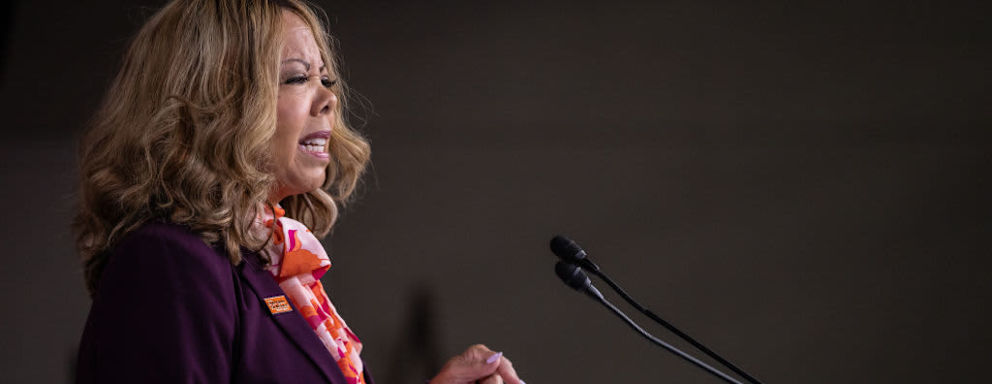Bipartisan Anti-Hazing Bill Signed Into Law
 Credit: Anna Rose Layden / Stringer / Getty Images
Credit: Anna Rose Layden / Stringer / Getty Images- The Stop Campus Hazing Act received bipartisan support in both chambers.
- It creates a new reporting system for hazing incidents.
- Previously, there were no national anti-hazing laws.
- Over 100 college students are estimated to have died from hazing-related incidents since 2000.
A newly passed law will add transparency to a historically obtuse dilemma: college hazing.
President Joe Biden signed the bipartisan Stop Campus Hazing Act into law Dec. 23. The law requires colleges and universities to clearly report instances of hazing involving their students and publicly display that information online for current and prospective students to see.
“I know what it’s like to lose a loved one to violence — no parent should ever have to bury their child,” bill sponsor U.S. Rep. Lucy McBath said in a statement. “The Stop Campus Hazing Act empowers students and their families to make informed decisions about the schools they attend and the organizations they join. That information could be life-saving.”
Hazing violations are not currently tracked by any government agency. Hazing statistics and hazing-related deaths are cobbled together from media and nonprofit reports. One such report estimates that there have been upwards of 105 hazing-related incidents in the U.S. since 2000.
The Stop Campus Hazing Act will give higher education experts a clearer understanding of how common hazing is.
McBath, a Democrat representing Georgia, proposed the bill in the House of Representatives. It attracted 58 cosponsors, including 38 Democrats and 20 Republicans. The bill passed both chambers without a formal vote thanks to its bipartisan nature.
All colleges and universities in the U.S. that accept and disburse federal financial aid must publish a Campus Hazing Transparency Report within one year of the law’s enactment date. Institutions must continue to update this report at least two times a year.
That report must include:
- The name of the student organization involved in the incident
- The date the incident occurred
- The date the institution’s investigation ended
- A general description of the hazing, including if it involved drugs or alcohol
- Whether any sanctions were placed on the student organization
The law covers all student organizations at a college or university in which two or more of the members are students. The organization does not need to be established or recognized by the institution, including fraternities and sororities.
College students, overall, may be drinking less alcohol now than their peers 20 years ago, but college hazing — which often involves drinking games or binge drinking, for example — continues to be an issue in the U.S.
Northwestern University fired head football coach Pat Fitzgerald in July 2023 after an investigation found that his players had participated in hazing rituals including forced nudity and coerced sexualized acts. The University of Maryland paused sorority and fraternity activities in March due to a potential hazing-related misconduct.
Before the new anti-hazing law went into effect Jan. 1, there was no anti-hazing law at the federal level. States including New Jersey, Florida, Ohio, and Georgia had their own laws.